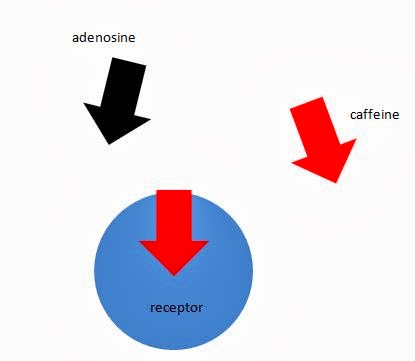Written by Peter Wright, NTP
Two small glands in your body are responsible for your energy levels. The adrenal glands are only about the size of a walnut and rest atop each of your kidneys. Don’t let their small size fool you, they are power houses. You could think of them as your gas pedal. How would your car run if the gas pedal was broken or stuck? If it was broken it might not run at all, if it was stuck you might be headed for a crash!
The adrenals control energy levels by releasing hormones called adrenaline, noradrenalin, and cortisol. These hormones prep your body for action by increasing blood flow, respiration, and blood sugar. The problem occurs when we over stimulate the adrenals. They can become tired and even exhausted. Their ability to produce these hormones is diminished and along with it your energy levels and ability to cope with stress are also diminished.
Caffeine can significantly overtax your adrenals. Caffeine increases the rate at which neurons fire in your brain. It does this by blocking adenosine receptors in your brain. Adenosine is a chemical messenger called a neurotransmitter. It promotes sleep and suppresses arousal by inhibiting neuron activity in your brain. When awake the levels of adenosine in the brain rise throughout the day, preparing you for restful sleep.
Imagine you needed to unlock a door. Pretend the door is the blue circle labeled “receptor”. You insert the caffeine key, only it’s the wrong key and it gets stuck in the lock. Now you can’t insert the right key, the adenosine. Caffeine doesn’t suppress the activity of your brain’s neurons like adenosine does, so they continue firing uncontrolled. This creates a stress response, which brings us back to where we started. In a stress response your brain’s pituitary gland sends a chemical signal (ACTH) to your adrenal glands to pump out their stress hormones, adrenaline, noradrenalin, and cortisol.
Presto! You feel revved up! But, what price did you pay? You’ve stressed your adrenals. No big deal…until they become fatigued and getting out of bed becomes difficult. You’ve interrupted the normal function of adenosine so when it comes time to go to bed, it may not go too well. Studies have shown that 250mg of caffeine can raise your adrenaline by 200%. Blood pressure and heart rate increase along with the adrenaline and noradrenalin released.
Consider this, 250mg is about one travel mug of coffee, or a 22oz iced coffee. Two 20oz sodas and a candy bar will also get you there. Many of us are consuming a lot more caffeine than that.
The bottom line is you need to protect your adrenal glands. Telltale signs of adrenal fatigue include dizziness when rising from a seated or lying position, chronically tired, sensitivity to bright lights, nervousness, and anxiety.
Take a tally of your daily caffeine consumption. Check coffee, tea, soda, energy drinks/products, coca/chocolate, and medications. If you’re consuming more than 100mg/day you should consider the long term consequences of the “perceived” short term gain.
Look for a future post on how to kick the caffeine habit.
Latest posts by Peter Wright, NTP, CGP (see all)
- Dehydrated Broth – Making It Easy to Drink Broth Every Day! - March 11, 2017
- Lose 10 lbs DURING the Holidays - November 19, 2016
- Finding Good Oils - February 7, 2016




No comments yet.